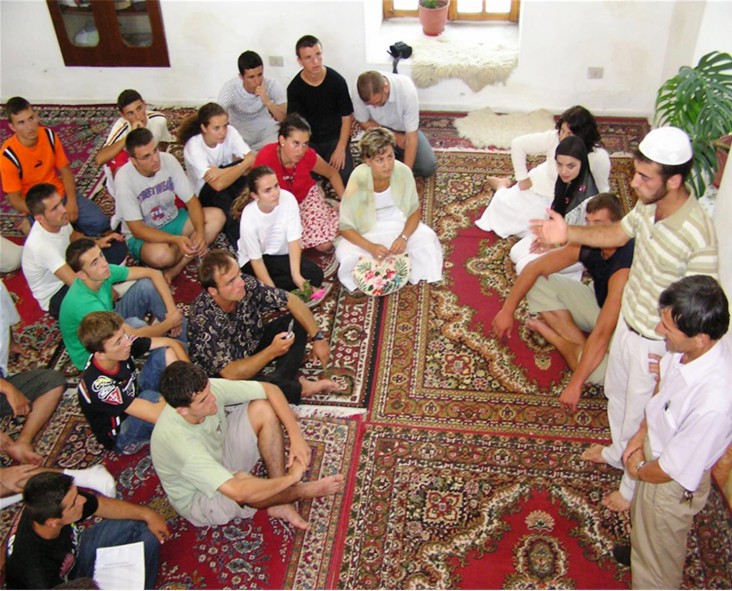Speeches Shim

CURRENT PROJECTS
- Planning and Local Governance Project: January 2012 –September 2019
- Accelerated Civic Development and Cooperation Program: January 2017 – July 2020
Albania, as a majority Muslim country with a substantial Christian population, has a compelling story to tell about religious tolerance. Yet a growing phenomenon of religious radicalization in marginalized rural communities stands to threaten this stability if enabling or “push” factors are not addressed.
A significant number of foreign fighters come from a combination of Albania and Albanian-majority areas of Kosovo and Macedonia. The Government of Albania (GoA) has taken steps to lead the region in countering/preventing violent extremism. USAID will support the GoA’s efforts to combat religious radicalism and violent extremism through prevention initiatives involving state institutions and agencies operating in the areas of local governance, education, social affairs, youth, employment, and anti-discrimination. USAID will also engage non-state actors, particularly religious communities, civil society, and women community members. In close partnership with USG interagency counterparts, USAID will build upon USG-supported activities between local leaders and religious communities to better understand, publically engage, and message concerns related to foreign fighters, the Albanian Islamic Community (AIC), vulnerable youth, and women.
PROGRAM DETAILS
STRENGTHEN CIVIC ENGAGEMENT TO PREVENT/COUNTER VIOLENT EXTREMISM
Albanian youth are vulnerable to recruitment by violent extremist organizations that exploit their growing sense of social exclusion. Young men are being side-lined in social and political forums. Endemic corruption and impunity for well-connected elites, along with poorly governed or relatively ungoverned areas, foster an environment in which young people feel disconnected to the general Albanian society.
USAID will support the Government’s National Coordinator on CVE to implement the National Strategy on Countering Violent Extremism. Based on previous experience establishing Community Advisory Panels for municipal governments, USAID will establish similar panels for at-risk youth and women in the designated municipalities. These groups will provide opportunities for young people and women to speak directly with local government, community policing officers, regional education officials, and civil society, religious, and business leaders. A youth mentoring program will connect civil society leaders with young people to prepare them to build resilience against attempts at radicalization. While this program is currently being designed, the goal is to identify and recommend alternative activities for at-risk youth, to include channeling this group toward Albanian government-sponsored and other existing vocational and training programs. The project will coordinate closely with existing working groups in specific geographic areas and public safety councils supported by the Organization for Security and Co-operation in Europe.
ACCELERATED CIVIC DEVELOPMENT AND COOPERATION PROJECT
USAID’s Accelerated Civic Development and Cooperation project will award small grants to Albanian civil society organizations, working alone or in partnerships with other CSOs, to promote democracy, good governance, and anti-corruption in Albania. USAID will support activities which build local capacity for long-term impact, strengthen democracy, governance, and civic education, and increase the participation of vulnerable populations in society. Taken together, these activities will mitigate the effectiveness of violent extremism recruitment and activities.
EXPECTED RESULTS:
• In close cooperation with the national and local government institutions, identify geographic areas with high potential for radicalization, recruitment, and potential drivers of VE.
• Continue strong cooperation with national and local government institutions working to combat or prevent VE.
• Establish youth and female advisory panels with municipal government partners.
• Establish mentor programs with civil society leaders to encourage and promote community service and tolerance.
• Counteract the ideologies and recruitment agendas of radical religious groups by establishing forums where political, religious, community, female, and youth leaders actively participate.
• Promote public information campaigns to educate communities regarding religious radicalization processes, causes, and consequences.

Comment
Make a general inquiry or suggest an improvement.